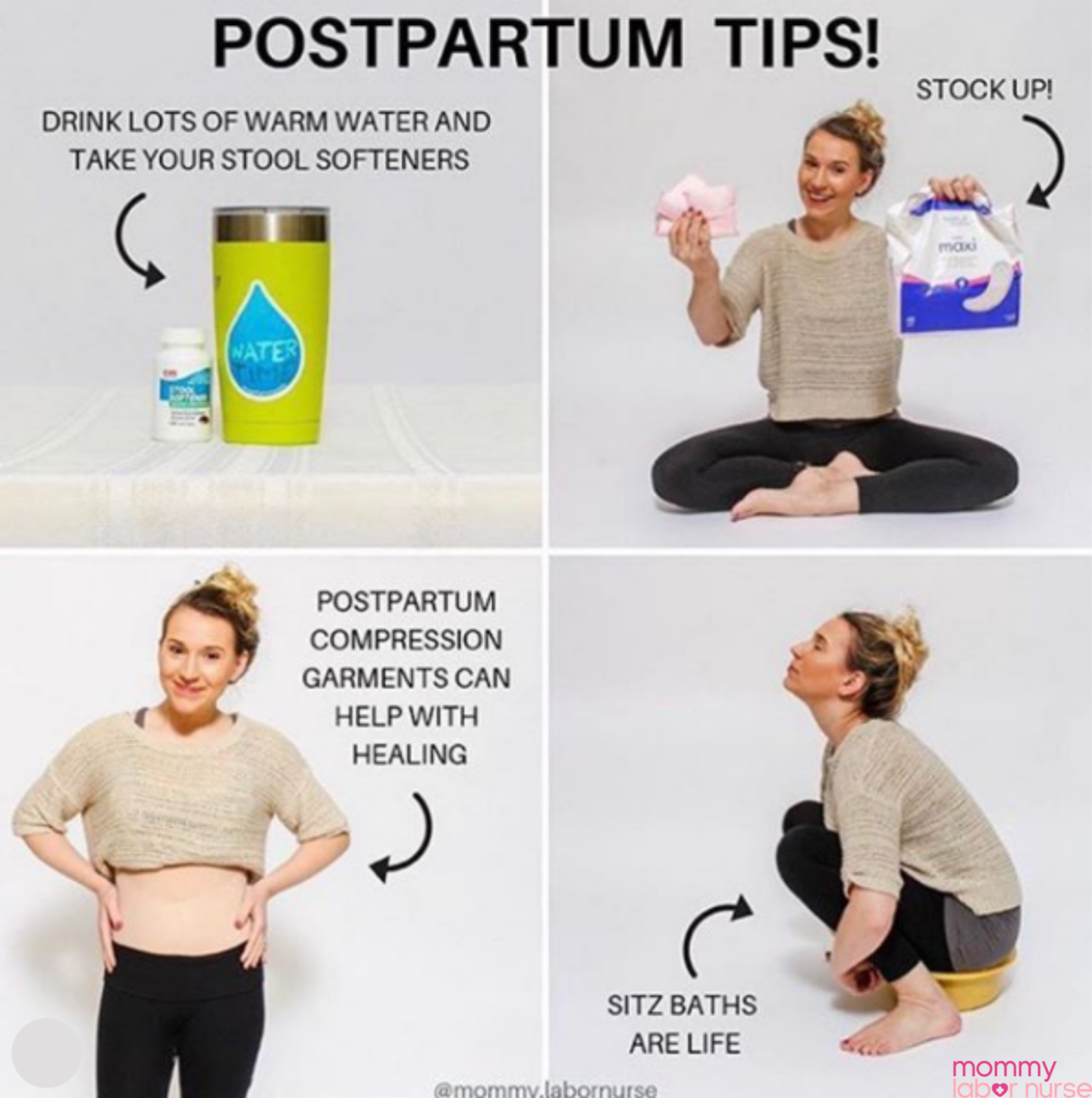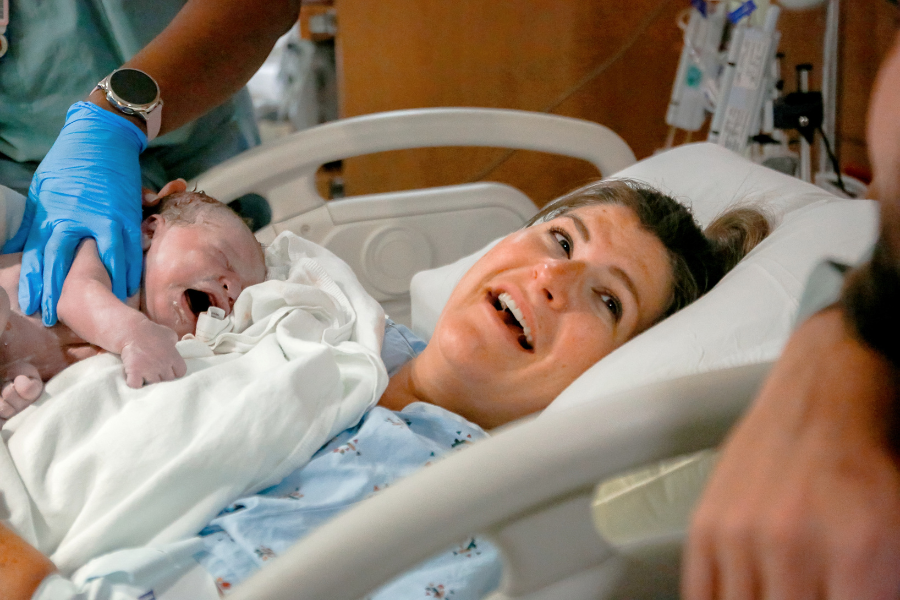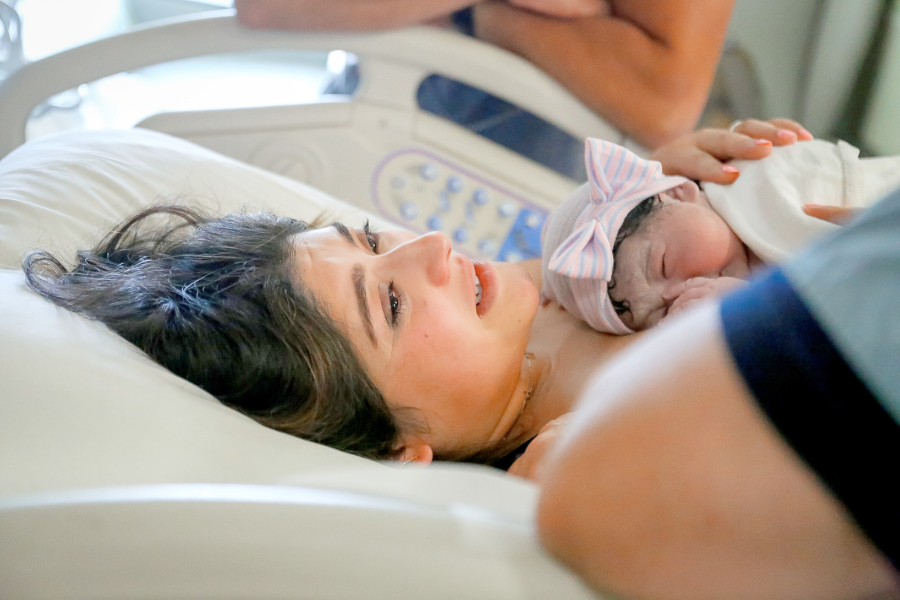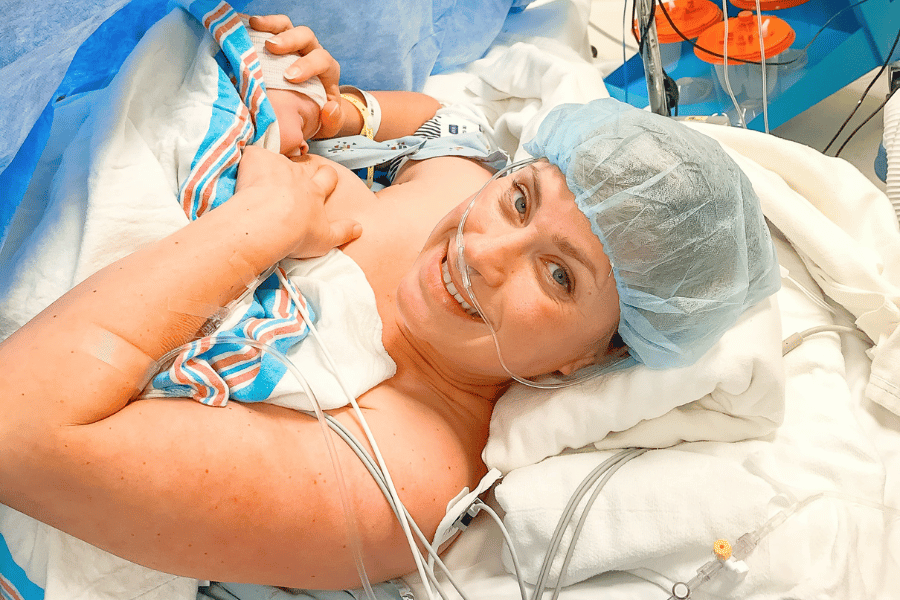They don’t tell you about postpartum itching down there, mama.
And maybe that’s because it’s kind of gross. Or because a little it’s embarrassing. Oh, and because luckily it doesn’t last *too* long!
But mostly, they don’t tell you about it because they forgot.
Regardless of the reason, mama, you won’t hear a lot about it from friends and family and well-wishers.
And that’s why it’s so important that I DO tell you about it. So you can be ready for it, prepare for it. So you’re not surprised or discouraged by it.
So let’s get right into it, postpartum itching down there is a thing, but I’ve got some tips to help you find relief – fast.
Follow @mommy.labornurse on Instagram to join our community of over 640k for education, tips, and solidarity on all things pregnancy, birth, and postpartum!
Postpartum Itching Down There and How to Help
Itching is a funny thing, as medical science goes. It’s called pruritis. And it’s about as clearly defined as a black cow under the new moon.
Why? Well, there’s really no defining or classifying it alone, as a condition by itself.
Instead, they classify it by the accompany or underlying condition that causes it.
Postpartum Itching After Childbirth
Postpartum itch or postnatal itch is totally natural and can be caused by a lot of different things.
This might include the standard sensations accompanying healing, a secondary infection, dry skin or itchy deposits of lochia (postnatal bleeding).
Why Does Postnatal Itch Down There Happen?
Itching can occur for a lot of different reasons. First and foremost, you probably have stitches. And, as it turns out, stitches itch. One of the most common complaints after delivery is pain and itching in the perineum.
They say itching means healing.
I don’t know if that’s true, but there will certainly be itching, and there should certainly be healing.
Another factor that can cause postpartum itching down there is that pregnancy and childbirth can seriously stress and even break the collagen fibers (connective proteins) within the perineum or vulva (source).
How Long Does Postpartum Itching Last?
Your doctor will know best how long it should take for you to heal. There’s a check-up routine for a reason. Be sure you’re taking your after-care seriously and stick to your routine check-ups.
Some resources claim you can be right as rain around 6 to 8 weeks.
The reality is that every body is different and you’ll recover in your own time. Working with your doctor to do it right is more important than finding ways to do it fast.
Your perineum and vulva are no exception.
What Itching to Expect Postpartum
Postpartum itching down there can take a lot of different shapes. Honestly, you will probably itch in a place you never knew you could.
The truth is a lot of your body was involved in the process of expelling that youngling, and as your body returns to normal, itching is one very normal way to sense those changes.
Postpartum Vulvar Itching
The vulva is naturally impacted during childbirth. As mentioned previously, damage to collagen fibers can result in both pain and itching in the affected tissues.
Postpartum Burning
Along with the itching, you’ll likely experience some burning. That’s usually more topical, where the skin might have been actively cracked or chapped.
This can happen with particularly dry skin. You have to be careful about what you use down there, so be sure to talk to your doctor if you feel like this is happening.

What Causes Postpartum Itching Down There?
As you can imagine, there is every reason you should itch down there, but there are also some more serious conditions to watch out for.
How do you tell the difference? Well, you don’t. Sorry about that.
YOU don’t, that is. Honestly, it’s like anything, mama. You have to make your best judgment with the tools you have at hand and get the proper authority involved when it’s time.
Just as you’ll be doing with your little one as they present with this or that, you have to take in the details and decide if it’s worth going to the doctor.
Related Reading: 7 Postpartum Recovery Tips
Postpartum Yeast Infection
A yeast infection can happen whether or not you just popped one out, mama. While the reasons it happens aren’t different, the impact it can have might be more significant.
Naturally, you want to do everything you can to avoid an infection like this at the best of times.
If you believe that you have a yeast infection, though, it’s worth seeing a doctor when you’re still in your postpartum recovery simply because any kind of infection is going to impact your ability to heal and could cause more serious conditions if left unchecked.
A yeast infection typically results in redness and burning around the vulva. There is usually pain when you pee and you can sometimes find a thick white discharge (like cottage cheese).
While a yeast infection isn’t the end of the world, you still want to have it checked out, mama. Sometimes these symptoms can be assumed a yeast infection but are actually the result of something worse (like bacterial vaginosis or a sexually transmitted infection).
Only your doctor can really tell the difference.
Yeast Infection After C-Section
Remember, lady. You can have a yeast infection anytime, even after having a c-section. Just because the baby didn’t come out that way doesn’t mean you can’t experience some of the same conditions, so take nothing for granted.
Extremely Dry Skin Postpartum
Skin moisture and the oils associated with it can be heavily influenced by your hormones.
Suffice it to say that having a baby plays havoc with your hormones.
It’s not a well-documented condition, so definitely talk to your doctor if you find that itchy skin down there is the result of what feels like excessively dry skin.
Itchy Lochia
Lochia is the bloody discharge that you’ll experience after birth. It’s comprised of all the excess tissue and blood that lined your uterus while pregnant.
This stuff will work its way out for a little while after delivery and can get left on your skin. As with period blood, it can be itchy and irritating until washed away.
Related Reading: Postpartum Essentials
How to Relieve Postpartum Itching
As with anything, there’s always something you can do to relieve postpartum itching down there.
A nice healthy dose of hygiene is always step one. Be sure to follow doctors’ orders in terms of how and when you take a bath, what kind of cleaning you perform, etc.
Peri Wash
Your first defense to anything perineal after birth will be this lovely little squeezy tube. Wiping, cleaning, scratching those itches—honestly, a spray of clean water from this bottle will basically be your lifesaver for a few weeks after birth.
Grab a few extras from the delivery room.
Postpartum Perineal Ice Packs
Chances are, if you’re looking to use perineal ice packs at this point, it isn’t entirely due to itching.
The hospital arms you with these lovely little packs to ease your wounded nethers. Take full advantage of the free supply and pocket every single one you can—in fact, ask for more.
Don’t feel bad about this, either. Anything that’s in the room goes in the garbage when you leave. And they are allotted a significant amount per patient. Unless there’s a shortage due to events in the world, you should have absolutely no shame taking all the ice packs your doc will give.
And if that’s not your thing (or there aren’t enough ice packs in the known universe), there’s always Amazon.
Postpartum Witch Hazel Pads
Witch hazel pads are a similar thing, in terms of use. They are primarily for pain relief, and they are a LIFESAVER.
They also happen to be cold, which happens to help with itching.
How to Make Witch Hazel Pads
You can make your own witch hazel pads, which will save you a lot versus buying them. Check out my awesome guide on how to make your own padsicles!
How to Stop Itching Stitches After Birth
Stitches are their own unique beast. The truth is that they are probably the biggest reason you’ll be itching. Whether you had an episiotomy or let the chips fall where they may, you’ll likely have some stitches.
** Remember your doctor’s recommendations here. Stitches need to be cared for in the manner prescribed by your care provider. Typically the doc recommends at least 6 weeks before you use tampons, have sex, or get too active.
Related Reading: Episiotomy vs. Tearing: Which Is Better?
Salt Bath for Stitches After Birth
Depending on doc’s recommendation, consider a salt bath to support the area with a bit of extra sterilization.
I’d be careful of products with too many chemicals here. Some natural sea salt is a safer bet.
Numbing Spray
You should have some nice cooling spray to numb those tender bits. The brand may vary, but that’s Dermoplast.
There’s some debate on whether to use red or blue Dermoplast postpartum. From everything I’ve found, the blue top is a topical analgesic only (cuts pain), where the red contains antiseptic agents that can cause burning.
Youch.
Sitz Bath
A sitz bath will let you sit naturally on top of the toilet without much trouble or submersion. Whatever the stuff that goes into the water, this convenient delivery method will make it easy and convenient to soak those poor little bits.

Surviving Postpartum Itching Down There
All in all, mama, this little itch is something you may not always be able to scratch directly, but it’s something that is temporary and more than a little cosmetic.
Barring serious complications or something that might take you down a bad path in terms of hygiene and health, a little itching is uncomfortable but survivable.
Be sure you’re taking full advantage of your support system, even in this. I’m certainly not recommending you ask someone else to scratch for you, but there are a lot of products and a few things you can do to get relief here, and you aren’t alone in the shopping or the administration!
I know that between your support structure and some of the things I’ve recommended here, you’ll be amazing, mama. A little postpartum itching down there can’t stop you from being the wonderful mother you have the potential to be.
Happy newborn mothering, mama!
Related Reading: What Do You Do When Baby Is Screaming From Gas Pain?





